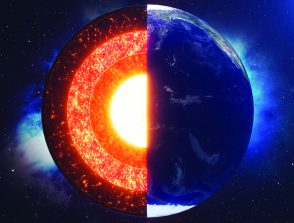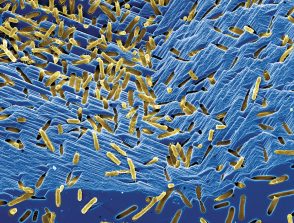Ab initio study of multicomponent silicate systems during large and giant impacts
04/09/2025
IPGP - Îlot Cuvier
14:00
Soutenances de thèses
Amphithéâtre
Adrien Saurety
Cosmochimlie, Astrophysique et Géophysique expérimentale (CAGE)
Understanding the formation and evolution of the solar system is a central challenge in planetary science. Over the past century, the astrophysical and cosmochemical communities have sought to reconstruct the processes that led to the current configuration of planets and satellites. Among these processes, planetary accretion through high-energy impacts between planetesimals and planetary embryos plays a fundamental role. Such collisions not only shaped the physical structure of planetary bodies but also influenced their chemical evolution, differentiation, and volatile content.
Despite considerable experimental and theoretical progress, many aspects of planetary accretion remain poorly understood. High-pressure and high-temperature shock experiments have provided key constraints, but they are time-consuming and costly. Additionally, many materials relevant to early planetary bodies—particularly those with complex, multicomponent compositions—have not been fully characterized under shock conditions. To address these challenges, ab initio molecular dynamics (AIMD) offers a powerful alternative. Based on first-principles quantum mechanics, AIMD enables the simulation of materials under extreme conditions with high accuracy, eliminating the need for empirical parameters.
In this thesis, we contribute to the ongoing effort to model impact processes in the early solar system by applying AIMD to study multicomponent silicate systems under shock. We combine this approach with thermodynamic integration to calculate entropy changes during shocks and use the electron localization function (ELF) to investigate the formation and breaking of chemical bonds. Together, these techniques provide a detailed understanding of the microscopic and thermodynamic behavior of materials during large and giant impacts.
The thesis is structured around several key studies. We first review the current understanding of solar system accretion, the role of impacts, and the selection of relevant materials for simulation.
In a published article, we use thermodynamic integration to quantify the entropy generated in shocked carbonaceous chondrite material and estimate the minimum velocity required to induce vaporization.
In a second study, we investigate hydrated chondrules under shock. ELF analysis reveals the formation of Si–H bonds, shedding light on the behavior of hydrogen during planetary collisions.
In a third study, we examine the bonding between carbon and iron in chondrule melts. We demonstrate that classical pair distribution functions can misrepresent bonding in disordered systems and propose a novel method to enhance bond identification.
Finally, we present preliminary results on iron sulfide (FeS) under shock, with implications for the study of core formation in small bodies and planetary satellites.
This work highlights the utility of ab initio methods in planetary science and provides new insights into the shock behavior of complex planetary materials. It contributes to the broader goal of reconstructing the early history of the solar system through rigorous exploration of the consequences of large and giant impacts on materials.






